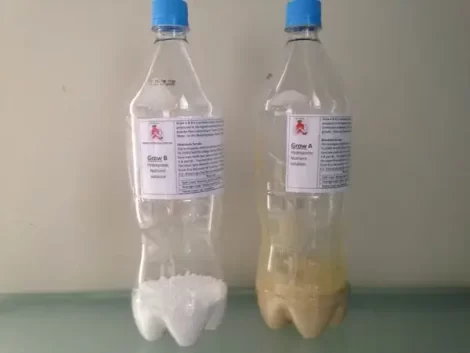3 Key Plant Nutrients for Higher Yields in Hydroponic Gardens
When you put time and effort into your hydroponic garden, you want to make sure you get the most out of your plants. These are the plant nutrients that will get you a higher yield no matter what you’re growing.
What could be better than growing your own plump delicious produce at home? Hydroponic gardens make it easy by growing quickly and only requiring a little space.
To get the best yield out of your crop, however, there are a few things you need to know. Specifically, what kind of plant nutrients do you need to feed your plants? If you want a big yield and the best tasting produce, your plants will need essential nutrients to grow.
Nitrogen
Nitrogen is abundant on the earth in gaseous form. You may remember from your high school science class that it actually makes up 78% of the air we breathe. Oxygen gets to be the star because of it’s life-giving properties but air with a high concentration of oxygen is actually poisonous.
Although the cells in our bodies don’t use nitrogen, there’s still a good reason there is so much floating around. Nitrogen is essential for plant growth. It helps the plants develop, grow strong, and gives them a vibrant green color.
However, to be effective for plant growth, nitrogen needs to be converted into nitrate. You can feed your plants nitrate by making your own fertilizer with urea or grass clippings. Or you can go the easy route and buy fertilizer pre-mixed with the right ratio of nutrients.
Be sure you pay attention to the phase that your plants are in as you determine how much nitrogen to feed. During the vegetative stage, the plants need more to feed their rapid growth. Once they’ve matured or flowered, they won’t need as much.
Phosphorus
Phosphorus is another important nutrient that plants need. It helps the roots and flowers grow strong and hardy. The right amount of phosphorus helps plants to handle harsh weather and other less than friendly environments.
Both phosphorus and nitrogen are so important that if either is lacking, the plants will simply not grow as big or as strong.
Don’t get overzealous with your application of phosphorus, though. If you have good soil, it already has a lot of phosphorus in it. Adding extra can actually be harmful to the environment over time.
The problem is that phosphorus binds easily with other elements in the soil. Thus it becomes unusable to the plant. To combat the problem, you need to make sure there are plenty of microorganisms in your soil. The microbial activity turns phosphorus back into a form the plants can use.
Potassium
To round off our list, we must mention potassium. This essential nutrient for plants helps them to retain water. This is great especially if you live in a drier area, or simply don’t want to have to water all the time.
Plus, the nutrient gives the plant what it needs for strong, early growth. It helps strengthen the plant overall. And it equips plants with disease and insect fighting properties.
Easy Hydroponic Garden Plant Nutrients
Those are the big three when it comes to essential plant nutrients. But don’t worry, you don’t have to become an expert in chemistry and biology to grow a delicious and lovely hydroponic garden. There are plenty of pre-mixed fertilizers out there that can help you enjoy a big, delicious yield from your garden.
For more great advice about growing your hydroponic garden check out our blog here!
Here at Mr Stacky, we provide a unique, clean and powerful powdered hydroponic nutrient blend which is specially formulated for residential hydroponic growers who have systems with different plants growing in various stages of growth. This is an all-purpose blend which is perfect for Mr Stacky Systems and is super cheap at only $9.50 for a 2 month supply!

About the Author
Mr Stacky is the leader in Tower Garden Systems in Australia, specializing in commercial hydroponic farming, urban farming & residential vertical gardening.
Find out how he can help you achieve your food production goals. Contact Brian


